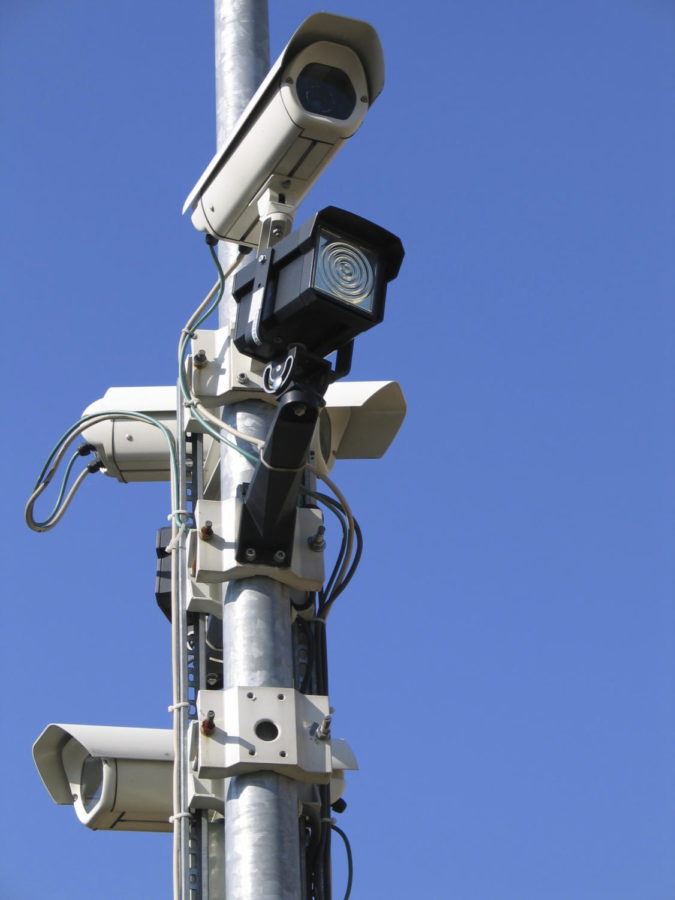Bruning: ‘Hunger Games’ teaches lessons, not partisanship
Cameras
April 3, 2012
Lately, I haven’t had much time for reading novels. However, when my younger sister insisted that “The Hunger Games” was a quick read, I decided to take the first book with me on a road trip. Sure enough, four-and-a-half hours later, I finished it.
I’m glad I did. The book was filled with political symbolism and comments on social structures, a refreshing change from young adult books featuring nothing more than an entertaining main character occasionally running into some amusing situation going no deeper than the context presented.
I’m sure that much of this content is missed by many readers. The book features a strong, beautiful, independent heroine; a love story; competition; and plenty of drama — all of which certainly appeal to the masses.
It also features a stark warning of an all-powerful government and cautions us on various environmental issues.
However, throughout all of this, I find it difficult to see it leaning either toward Republican or Democratic ideals.
I would entertain an argument that the book has slightly libertarian views. There is an overarching theme of “every person for themselves,” although it is severely missing a “live and let live” theme given the all-controlling government and requirement of the tributes to kill one another.
I would also say that yes, maybe the book is Republican, but not in the sense of a party rather than of revolution and the desire of the rebels to overthrow this government.
The book even boasts some environmental warnings, including our dependence on coal and the potential outcomes of genetic modification.
District 12, the mining district of Panem, is a good example. In this district, workers are forced to mine in deep, dangerous mines. This area is in Appalachia, and after hundreds of years of mining, workers must delve into these huge mines and put themselves in great danger.
However, that is the assignment for District 12 production by the Capitol, the name given to the ruling government, and the citizens of District 12 must abide by that assignment.
There are also various instances where the Capitol uses genetic modification to create animals that can be used as weapons against the citizens of Panem.
The book is full of metaphors, symbolism and lessons to consider. Instead of making such a book into partisan nonsense, we should analyze “The Hunger Games” from a perspective that won’t continue to divide, but will bring citizens together to fight for their freedoms and compromise rather than resorting, once again, to their political parties.
The Obama administration is not the same as the totalitarian government, the Capitol, we see in “The Hunger Games.” It is expected that a government will create jobs and pass policy during a time of recession. As we saw during the Great Depression, a global economy that must take politics between countries into consideration is no longer able to fix itself without some government intervention. The free market is no longer the answer to solve all economic problems in times of crisis.
During times of recession, the government will spend in order to help its citizens through. During times of economic growth, the government will collect from the citizens (in the form of taxes) to save for times of recession, thus creating balance.
However, when citizens don’t pay taxes in times of economic prosperity due to things such as tax breaks, the government is unable to keep this balance. So, when those same businesses that didn’t pay taxes are on the verge of bankruptcy, somehow the government is now expected to bail them out.
It has been argued that “The Hunger Games” is a right-leaning book that warns against too much government control. Examples such as Russia were brought up.
Yes, certain countries have experienced losses of personal freedoms. However, Russia didn’t lose their rights under the hand of a Democratic leader trying to provide his citizens with work and an income during a recession caused by careless investments and shady practices. Russia lost them under the power of a dictator acting in the name of Communism during a period in which citizens were experiencing mass unemployment and severe inflation without the safeguards we have today thanks to post-Depression era policy.
A book that is written in a way that people ranging from middle school students to fully grown adults are able to relate to and learn from is an amazing accomplishment.
I hope my young cousins who read it are inspired by the strong female heroine. I hope my peers are drawn to action by the revolutionary spirit. I hope my leaders are touched by the cautionary tale of destruction by nuclear bombs, depletion of resources and a government that is all powerful. I hope they are able to use this not to argue about partisanship and put a stamp of a party, but instead discuss the issues that affect us as human beings, not members of a specific group.

















